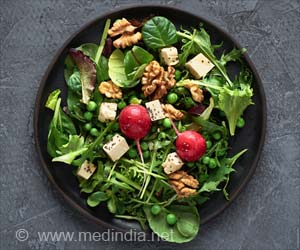Diabetics have food restrictions which can make it difficult during the holidays. Know what to incorporate and what not.
- Diabetes is a metabolic condition affecting over 37.3 million people worldwide
- The holidays involve family, friends and food can cause someone to easily go off track //
- Ideal diet for a diabetic would be one rich in fruits, vegetables, whole grains, protein and non-fat dairy
Diabetes
Go to source). In 2014, 8.5% of adults aged 18 years and older had diabetes. In 2019, diabetes was the direct cause of 1.5 million deaths and 48% of all deaths due to diabetes occurred before the age of 70 years. Another 460 000 kidney disease deaths were caused by diabetes, and raised blood glucose causes around 20% of cardiovascular deaths (2✔ ✔Trusted Source
Global Burden of Disease (GBD)
Go to source).
5. Lifestyle Management: Standards of Medical Care in Diabetes-2019
Go to source). The goals from the American Diabetes Association (ADA) 2019 include the following:
- To promote and support healthful eating patterns, emphasizing a variety of nutrient dense foods in appropriate portion sizes in order to improve overall health and achieve and maintain body weight goals; attain individualized glycemic, blood pressure, and lipid goals; delay or prevent complications of diabetes
- To address individual nutrition needs based on personal and cultural preferences, health literacy and numeracy, access to healthful food choices, willingness and ability to make behavioral changes, as well as barriers to change
- To maintain the pleasure of eating by providing non-judgmental messages about food choices
- To provide an individual with diabetes the practical tools for day-to-day meal planning rather than focusing on individual macronutrients, micronutrients or single foods
Planning Ahead Regarding Nutrition Choices can be Beneficial
Carbohydrates: The total amount of carbohydrate (CHO) consumed has the strongest influence on glycemic response (4✔ ✔Trusted SourceNutritional Recommendations for Individuals with Diabetes
Go to source). Carbohydrate intake should emphasize nutrient-dense carbohydrate sources that are high in fiber, including vegetables, fruits, legumes, whole grains, as well as dairy products. People with diabetes and those at risk are advised to avoid sugar-sweetened foods and beverages.
Fiber: Intake of dietary fiber is associated with lower all-cause mortality in people with diabetes (5✔ ✔Trusted Source
Dietary fiber, carbohydrate quality and quantity, and mortality risk of individuals with diabetes mellitus
Go to source). A fiber rich meal is processed more slowly, which promotes satiety, may be less caloric, and lower in added sugars, which can help combat obesity and also may prevent risk of heart disease, type 2 diabetes, and colon cancer. The FDA advocates consumption of 25 g dietary fiber per 2,000 calories consumed.
Fat: The American Heart Association, and American College of Cardiology currently recommend limiting the amount of dietary saturated and trans-fat intake (6✔ ✔Trusted Source
2013 American Heart Association/American College of Cardiology Guideline on Lifestyle Management to Reduce Cardiovascular Risk: practice opportunities for registered dietitian nutritionists
Go to source). Recommendations from the Institute of Medicine and the Academy of Nutrition and Dietetics for healthy individuals are that 20% to 35% of total calories should come from fat (7✔ ✔Trusted Source
Dietary reference intakes for energy, carbohydrate, fiber, fat, fatty acids, cholesterol, protein and amino acids
Go to source).
Protein: Protein recommended is 0.8g/kg for those with kidney disease and 20-30% of total caloric intake for those without. Include good sources of lean protein like turkey, fish, chicken, yoghurt, tofu, tempeh and nuts.
Vitamins: Including Vitamin C, D and E may help with diabetes.
- Sodium- limit sodium consumption to 2,300 mg/day.
- Magnesium- There is some evidence that higher dietary intake of magnesium may help prevent type 2 diabetes in both middle-aged men and women at higher risk for developing the disease. Dietary sources of magnesium include nuts, whole grains, and green leafy vegetables.
References:
- Diabetes - (https://www.who.int/news-room/fact-sheets/detail/diabetes)
- Global Burden of Disease (GBD) - (https://www.healthdata.org/gbd/2019)
- 5. Lifestyle Management: Standards of Medical Care in Diabetes-2019 - (https://pubmed.ncbi.nlm.nih.gov/30559231/)
- Nutritional Recommendations for Individuals with Diabetes - (https://pubmed.ncbi.nlm.nih.gov/25905243/)
- Dietary fiber, carbohydrate quality and quantity, and mortality risk of individuals with diabetes mellitus - (https://pubmed.ncbi.nlm.nih.gov/22927948/)
- 2013 American Heart Association/American College of Cardiology Guideline on Lifestyle Management to Reduce Cardiovascular Risk: practice opportunities for registered dietitian nutritionists - (https://pubmed.ncbi.nlm.nih.gov/25439080/)
- Dietary reference intakes for energy, carbohydrate, fiber, fat, fatty acids, cholesterol, protein and amino acids - (https://pubmed.ncbi.nlm.nih.gov/12449285/)












